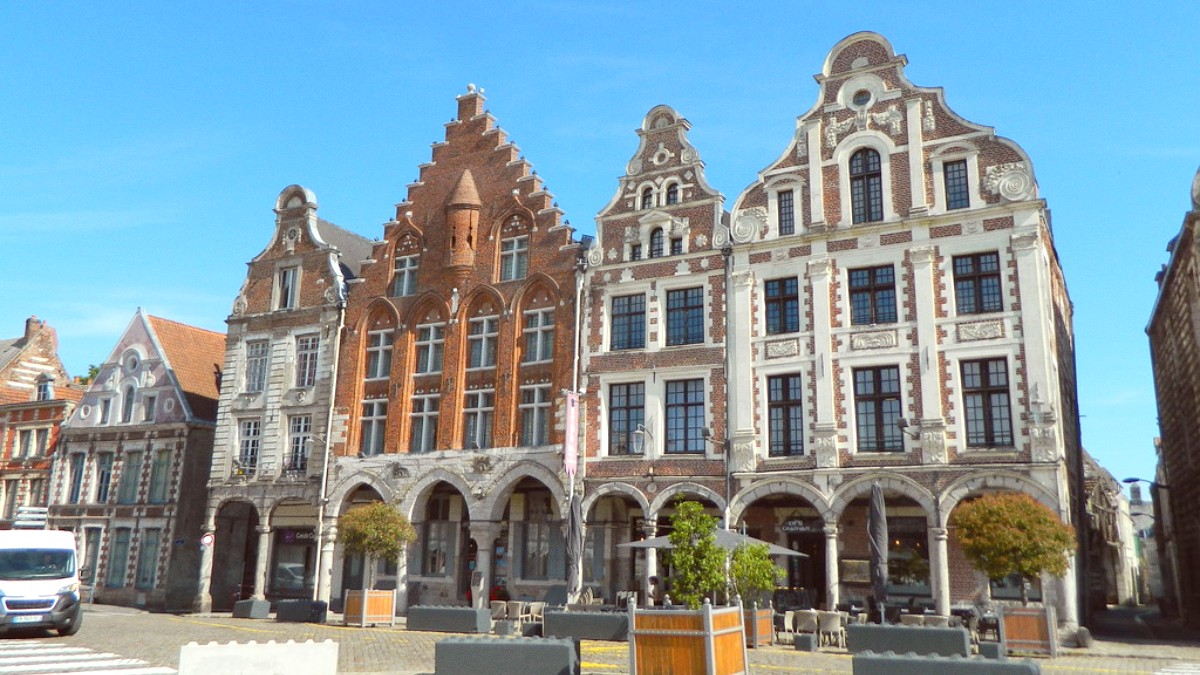
France
Spring (March-May): Days are mild, but evenings stay cool. Pack Long-sleeved shirts, sweaters, or cardigans. A medium-weight, water-resistant jacket. A Lightweight scarf for warmth and style.
Autumn (September-November): Layering is advised. Temperatures drop steadily, and rainfall increases. Pack long-sleeved tops, warm sweaters, and a waterproof, windproof jacket. Consider warmer scarves and possibly light Gloves as November nears.
Your most important item. Arras city center features charming but uneven cobblestone streets. Cushioned Sneakers, like Skechers Go Walk or similar, supply good support for extended walking.
These find use for wet weather, especially during the cooler months of autumn and winter, keeping your feet dry.
Pack a pair of dressier shoes or boots if you plan evenings out or wish to wear something more formal for dinner occasions.
Always carry physical and digital copies of your most important papers for a secure trip.
France uses Type E power sockets (two round pins with an earthing hole). Standard voltage is 230V at 50Hz. A Universal travel adapter with Type E compatibility finds use. Check if your devices are dual voltage (100-240V) to avoid a Voltage converter.
A Compact mirrorless camera or a Smartphone with a quality camera suffices for most photography. Bring extra batteries and memory cards. Consider B&H Photo for gear.
Store photos and important documents on cloud services like Google Drive or Dropbox.
Consider a small physical backup drive if you carry a laptop and prefer local backups.
Use strong passwords and two-factor authentication for sensitive accounts.
A well-stocked personal health kit prepares for minor ailments and unexpected needs during your travels. A Basic first aid kit finds use for common issues.
Arras is a flat city, so altitude sickness is not a concern. If you experience motion sickness, bring appropriate remedies.
Consider any specific gear you might need for planned activities beyond general sightseeing.
When traveling with young children and renting a car, decide if you prefer to bring your own car seat for familiarity and fit, or rent one from the car rental company.
A quality camera or smartphone with an excellent camera finds use for capturing the unique architecture of the squares and the atmospheric underground sites.
Beyond the basics, a few extra items significantly enhance your comfort and security during your trip.
Carry specialized products if you have preferences.
Reduces single-use plastic waste from takeaways.
Access safe tap water and avoid plastic bottles.
Useful for markets and stores, limiting plastic bags.
Powers devices without needing multiple adapters.
Pack light and utilize packing cubes. This facilitates organization and space-saving, making travel more manageable.
Consider a capsule wardrobe to mix and match outfits, minimizing the number of items needed.